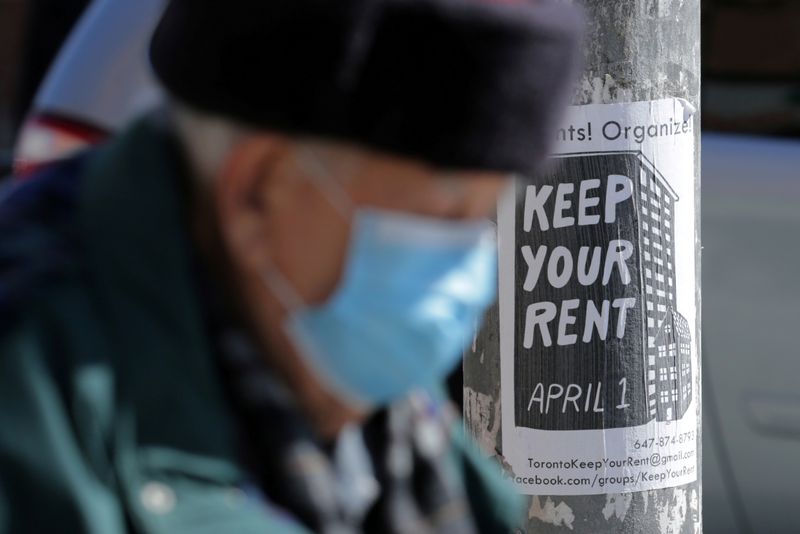By David Ljunggren and Kelsey Johnson
OTTAWA (Reuters) - The Canadian coronavirus death toll passed the 5,000 mark on Tuesday and Prime Minister Justin Trudeau said major reforms were needed for seniors' residences, where more than 80% of the victims lived.
The public health agency said the number of deaths edged up by 2.9% to 5,049, from 4,906 on Monday, one of the smallest daily gains so far. Canada is the 11th nation to record more than 5,000 deaths.
Long-term care homes in Ontario and Quebec - the two most populous provinces - have been particularly hard hit.
"We've seen heartbreaking tragedies in long-term care facilities and nursing homes right across the country - overworked staff, understaffed residences, grieving families," Trudeau told reporters.
"There are serious underlying challenges facing these facilities and in the coming months, the federal government will be there to help the provinces find lasting solutions."
Trudeau also said Canada was "looking at stronger measures" to ensure the novel coronavirus was not spread by people crossing the long border with the United States, but did not give details. The two nations have agreed to temporarily ban non-essential travel under a deal that will expire on May 21.
Separately, the Canadian Border Services Agency said it would temporarily suspend service at 342 sites where small U.S. recreational vessels can dock, and at 126 minor airports and six crossings in remote areas of Ontario and Manitoba.
Almost 60% of the deaths have occurred in Quebec, where Premier Francois Legault promised to reform the province's 400 long-care homes to ensure higher pay for workers and to limit the number of rooms.
"With these reforms in the coming months, you will see big changes," he told a briefing.
Federal Seniors Minister Deb Schulte earlier announced Ottawa would give seniors living on a fixed income a one-time payment ranging from C$300 ($215) to C$500 to deal with increased costs linked to the outbreak.
The total value of the payments - which will help 6.7 million people - is C$2.5 billion. Ottawa has committed more than C$160 billion in direct spending, more than 7% of gross domestic product, on measures to deal with the outbreak.

These were designed so "we can ... restart the economy soon and we won't need to look at what we might need to do in six months if we're still, heaven forbid, all locked down", Trudeau said, adding programs would be extended if needed.